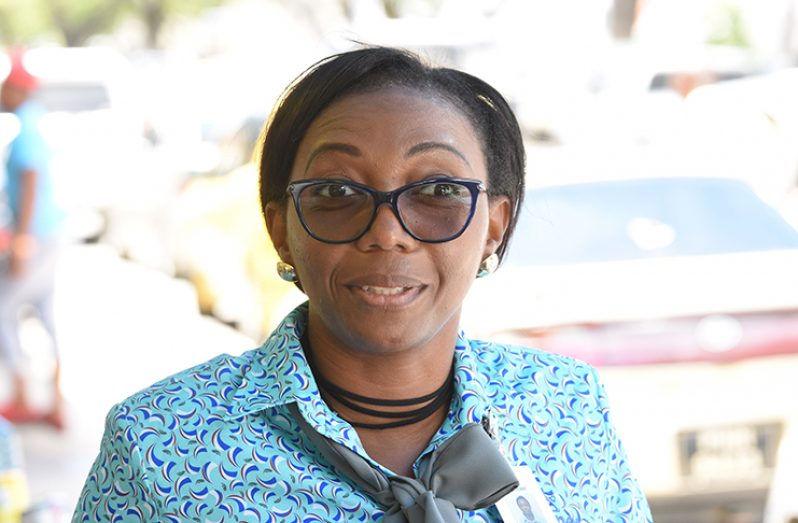– for cash transfer to work, say GT residents
GUYANESE have begun to weigh in Professor Clive Thomas’ recommendation that the government, when it begins to receive net inflow of revenue from oil production, should make annual cash transfers to every household.
Thomas made the suggestion on Sunday while he was addressing residents of Buxton, East Coast Demerara, and other stakeholders at the Eusi Kwayana Emancipation Symposium held at the Friendship Primary School.

His remarks created a debate on social media with some persons sharing his opinion, while others stated that Guyanese would not spend the money wisely.
Some suggested that the money should be injected into various sectors for the eventual benefit of all.
Taking to the streets of Georgetown, the Guyana Chronicle spoke with several citizens who had heard about the trending topic in the media and many of them had their own take on the matter.
“I stand for free education, free transportation and free hospital and medical attention which we are already getting somewhat [medical care], but I also feel like they can give every household something because it’s a lot of money and it’s our country,” said Abdul Yusef, a park attendant.
Questioned on whether he thought that the cash transfer would be mismanaged by some, he said: “Everybody don’t spend the same way, some may spend it on food, some may party with it but for me, I am not a healthy person, I’m a sick person. I have to use medication to stay alive. So I would stash it and live off of it for my health.”
A worker at Courts Guyana Inc Saberina Hall believes that whatever is done, a sound plan is required.
“You can’t give [money] right away; you have to ensure that things are in place. They’re supposed to have a plan because everybody is going to be excited knowing that they’re getting [money] but what are we doing with it? Smoke it out or go and party? No. If it is that you’re going to put it in my account and I will be able to access it little by little, that’s okay. But, that’s my suggestion and that may not be for everybody. As a working person I know what I would do,” Hall said.
GUYANESE MUST BE BETTER
Making another suggestion, she continued: “Or, find another way, some people don’t have their own homes. Put something in place that they can use the money to help to build a place to live. We have to do things to make Guyana better and the citizens must enjoy that money and not just the higher ones.”
Thomas, at the Emancipation Symposium in Buxton, had clarified that should such an initiative be taken up, the bulk of the oil revenue would not be utilised, but rather a small portion for a good cause.
“It is not as if I am asking for all the oil wealth to go to cash transfer; I am saying take a percentage, take two per cent, four per cent, five per cent — have a limit – and build into it a recognition that if the price of oil goes down, the percentage remains the same — so the limit of exposure is predetermined so that you don’t run the risk of creating a fiscal crisis,” he advised.
However, artist Albert Barnwell still has a few questions which he posed to the newspaper when asked about his thoughts on the matter.

“With this revenue, I don’t know how they’re going to distribute it [the cash to each household] and is it going to be years to come? It also depends on how wise is the person. I don’t want to knock our people, but we are a people that think for today and we don’t think that tomorrow is going to come. I’m only judging from things you see on how we live. But I feel that it all depends on your status, your IQ, as different people would do different things,” Barnwell said.
He endorsed the recent advice of President of the Tourism and Hospitality Association of Guyana (THAG) Mitra Ramkumar, who suggested that the government invest some of the money in tourism.
“I think, of course, that the government is going to increase pensions and salaries but if salaries go up, how will the private businesses benefit? I think it is a good idea to invest in tourism. I feel we truly have the potential for a total transformation,” he said, although he added: “The tourism sector is stressing interior tourism, I have no problem with that, but you have to do it on both fronts. You have to develop a city tourism package also.”
Research shows that other oil-producing countries, including Nigeria, have utilised cash transfers as a means to support its citizens.
Egypt utilises a monthly cash-transfer programme, targeting the country’s poorest and most vulnerable families to help them afford to invest in the health and education of their children.
However, Egypt’s programme is supported by the World Bank-funded Strengthening Social Safety Nets Project.
According to a UNICEF report on ‘Child Poverty: A Role for Cash Transfers in West and Central Africa: “In countries that are rich in natural resources, such as oil, cash transfers can play a redistributive role, ensuring that the poorest domiciles of the population benefit from mineral or oil revenues, so helping to reduce inequality and to build social cohesion.”
Meanwhile, Guyana’s discovered oil resources have already surpassed four billion barrels of oil-equivalent (BoE) with the country leading the world in terms of oil and gas discoveries for 2018 in the first half of the year.












